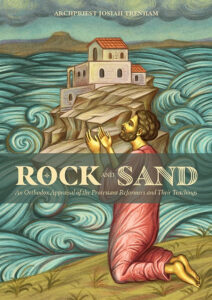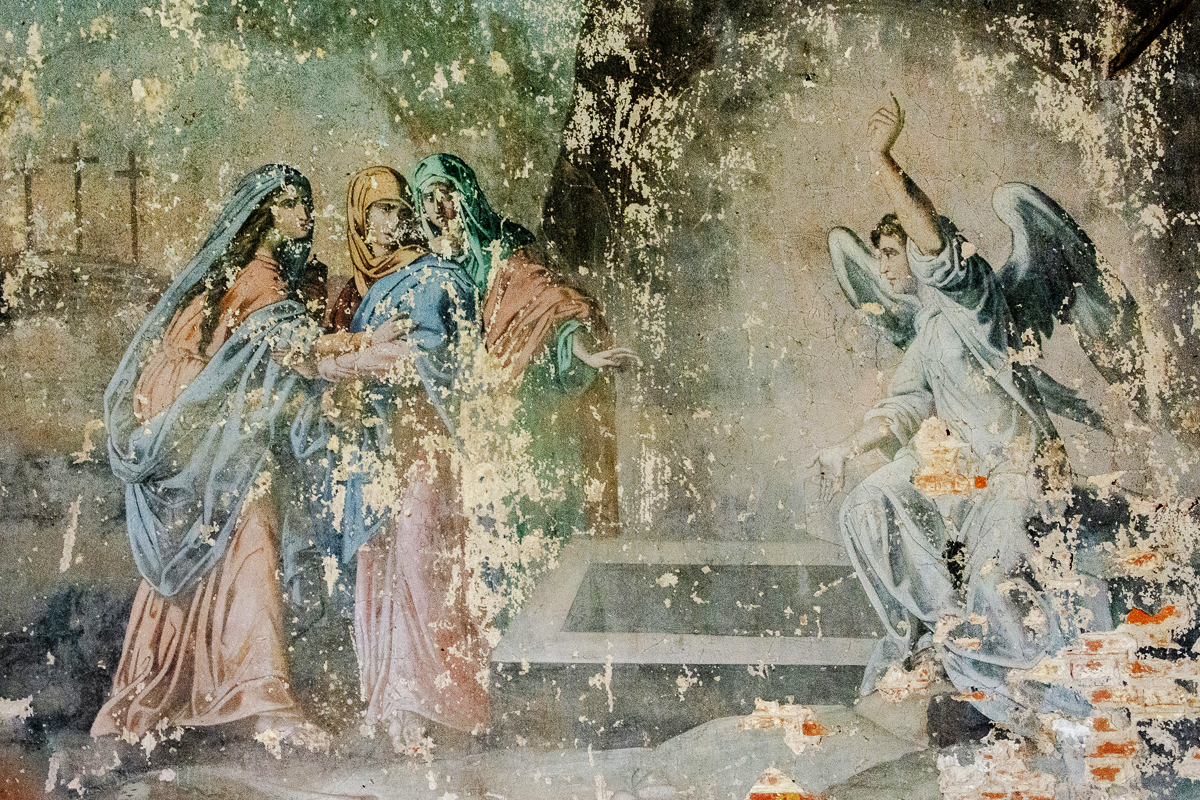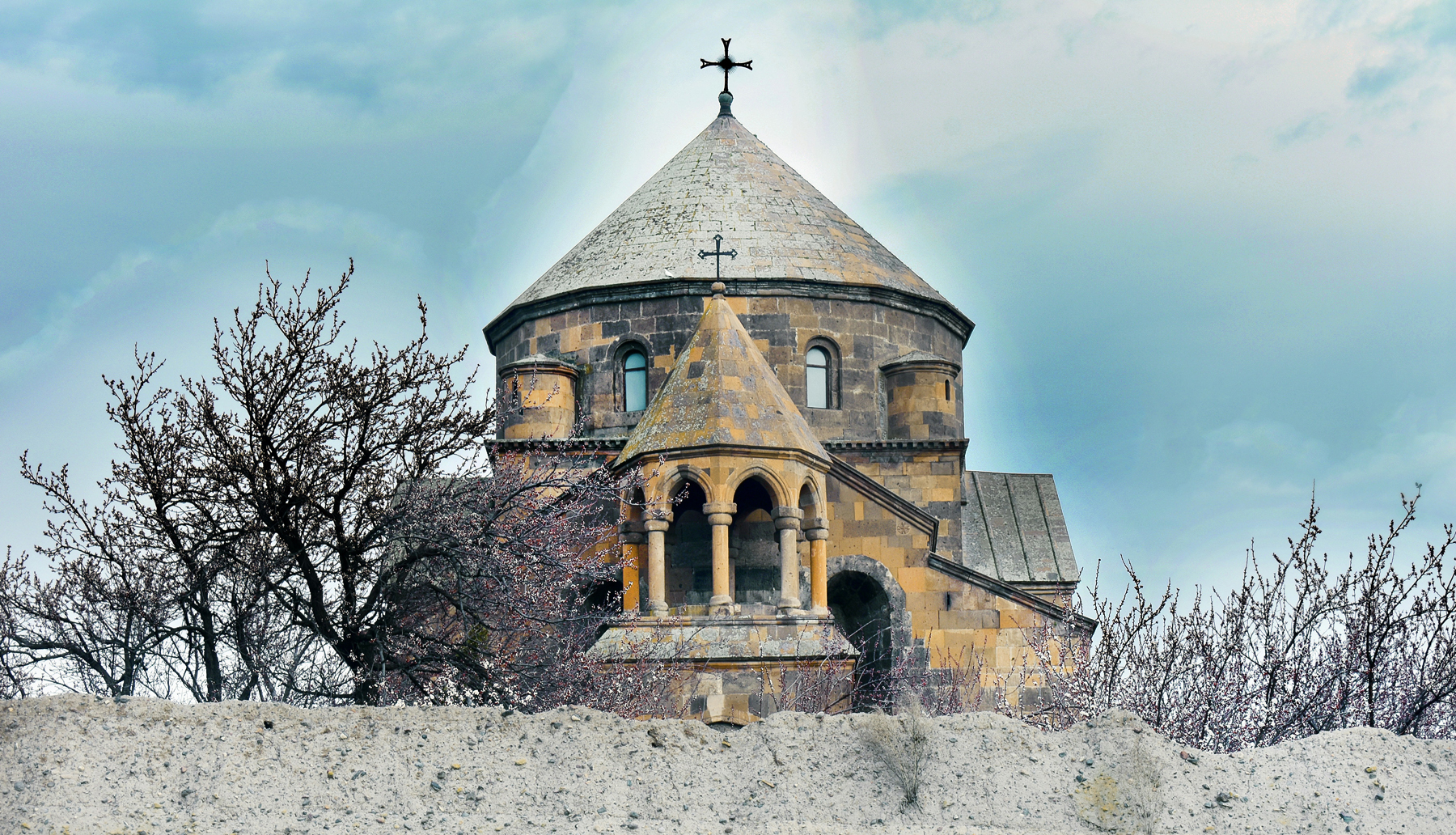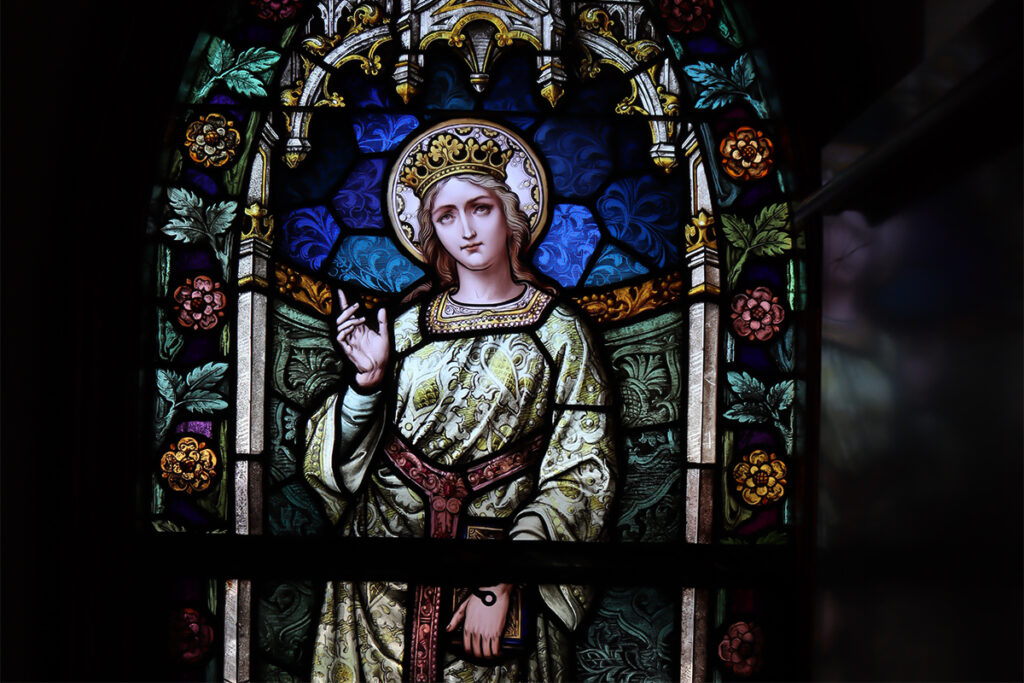“Rock and Sand: An Orthodox Appraisal of the Protestant Reformers and Their Teachings” by Dr. Josiah Trenham significantly contributes to the ongoing dialogue between Orthodox Christianity and Protestantism. Published in 2015, this work aims to provide an Orthodox perspective on the Protestant Reformation, its key figures, and its theological implications. Dr. Josiah Trenham, a priest in the Orthodox Church, presents a detailed examination of the Reformation, juxtaposing Orthodox Christian theology with various Protestant traditions.
Introduction
In Christian thought’s vast and varied landscape, the dialogue between tradition and reform is both ancient and ongoing. “Rock and Sand” by Josiah Trenham is a significant marker in this conversation, offering a discerning yet charitable Orthodox appraisal of the Protestant Reformers and their teachings. This work is not merely an academic exercise; it is a heartfelt endeavor to bridge understanding between two profound expressions of Christian faith while firmly grounding itself in the bedrock of Orthodox tradition.
Father Trenham, with erudition and pastoral sensitivity, embarks on a journey through the tumultuous waters of the Reformation, navigating with a compass set by the early Church Fathers. His exploration is polemical yet permeated with a spirit of charity, acknowledging the Protestant Reformers’ sincere religious fervor and theological contributions, even as he critiques their departures from what he perceives as the true apostolic faith.
The book is structured as a dialogue between “Rock” and “Sand,” metaphorically representing the enduring solidity of Orthodox tradition and the shifting grounds of Reformation thought, respectively. The “Rock” section lays a foundation, elucidating the Orthodox perspective on crucial Christian doctrines, including the nature of the Church, the sacraments, and the path to salvation. This section is not just a defense but an invitation to glimpse the beauty and depth of Orthodox theology, rooted in centuries of contemplation and liturgical life.
In contrast, the “Sand” section is a thoughtful examination of the Reformation, characterized not by dismissiveness but by a rigorous engagement with the theological innovations introduced by figures like Luther, Calvin, and Zwingli. Father Trenham’s critiques are framed with respect, aiming not to disparage but to dialogue, question, and seek understanding. His approach reflects a deep commitment to truth and a pastoral concern for unity in the body of Christ.
“Rock and Sand” is, at its heart, a call to conversation. It is an appeal to both Orthodox and Protestant believers to reflect on their roots, to consider the implications of their theological stances, and to engage with one another not as adversaries but as fellow pilgrims on the journey of faith. Father Trenham’s work is a testament to the possibility of rigorous theological discourse maintaining a spirit of love and respect for those with whom we disagree.
In this introduction to “Rock and Sand,” we are invited to embark on a journey of discovery to explore the contours of Christian history and theology with an open heart and a discerning mind. May this book serve as a bridge, encouraging us to walk across with a spirit of humility and a shared desire for the truth that transcends our divisions, finding common ground in our mutual love for Christ and His Church.
Critical Analysis
Josiah Trenham’s “Rock and Sand” critiques key Protestant movements, including Lutheranism, Calvinism, and Anabaptism. His analysis is rooted in a deep commitment to Orthodox theology and ecclesiology, providing a critical perspective to foster understanding.
Lutheranism
Trenham’s examination of Lutheranism centers on Martin Luther, the seminal figure of the Protestant Reformation. He acknowledges Luther’s profound impact on Christianity, noting his initial intention to reform perceived abuses within the Roman Catholic Church. Trenham highlights Luther’s doctrine of justification by faith alone (sola fide) as a radical departure from the traditional Christian understanding of salvation as a synergistic process involving faith and works, as upheld by the Orthodox Church.
Trenham critiques Luther’s interpretation of Scripture, particularly his emphasis on the primacy of faith to the exclusion of works, as an oversimplification that neglects the holistic scriptural narrative of salvation. He also addresses Luther’s rejection of certain sacraments and his reconfiguration of the Eucharist, which diverge significantly from Orthodox sacramental theology. Trenham’s critique is not merely doctrinal but also ecclesiological, pointing out that Luther’s break from Rome led to a fracturing of Christian unity and the subsequent proliferation of denominations, which he views as contrary to the unity prayed for by Christ.
Calvinism
In addressing Calvinism, Trenham focuses on John Calvin, whose theological systematization and emphasis on the sovereignty of God have deeply influenced Protestant thought. Trenham engages critically with Calvin’s doctrine of predestination, arguing that it undermines the biblical teaching of free will and God’s universal desire for salvation. He contends that Calvin’s emphasis on the total depravity of humanity and the irresistible grace of God presents a view of salvation that is at odds with the Orthodox understanding of cooperation between human freedom and divine grace.
Trenham also takes issue with the Calvinist understanding of the Eucharist, particularly the spiritual presence of Christ, as opposed to the real presence affirmed by Orthodox theology. He views Calvin’s ecclesiology, with its rejection of apostolic succession and the sacramental priesthood, as a departure from the apostolic tradition maintained by the Orthodox Church.
Anabaptism
Trenham’s analysis of Anabaptism recognizes the diversity within this movement, which emerged as a radical wing of the Reformation, advocating for adult baptism and a visible church of believers. He appreciates the Anabaptists’ emphasis on personal piety and ethical living but critiques their rejection of infant baptism as inconsistent with the early Church’s practices and teachings. Trenham sees the Anabaptist separation from the wider society and their skepticism of established church structures as problematic, arguing that it leads to a form of ecclesial isolation that is alien to the Orthodox vision of the Church as a sacramental community that sanctifies God’s people in the world through its presence.
Trenham is particularly concerned with the Anabaptist tendency towards theological individualism and the consequent subjective interpretation of Scripture, which he believes undermines the Christian faith’s communal and apostolic nature and authority as understood in Orthodoxy.
The Church of England
Trenham’s examination of the Church of England (Anglicanism) is nuanced, recognizing its unique position as a via media, or “middle way,” between Roman Catholicism and Protestantism. He notes the historical and political circumstances surrounding its formation under King Henry VIII and its subsequent theological development under figures like Thomas Cranmer and Richard Hooker. Trenham appreciates the Church of England’s retention of certain liturgical and sacramental elements, which he sees as vestiges of apostolic Christianity. Still, he critiques the Church’s departure from Orthodox ecclesiology and theology in several key areas:
- Authority and Tradition: Trenham critiques the Anglican reliance on the Elizabethan Settlement’s “three-legged stool” of Scripture, tradition, and reason as a departure from the Orthodox understanding of Holy Tradition as the life of the Holy Spirit within the Church, guiding the faithful in interpreting Scripture and living out the Christian faith.
- Ecclesiology: He addresses the issue of apostolic succession in the context of the English Reformation, questioning the validity of Anglican orders from an Orthodox standpoint due to changes in ordination rites and the theological understanding of the priesthood.
- Sacramental Theology: While acknowledging the Anglican Communion’s maintenance of a sacramental worldview, Trenham points out divergences in the understanding and practice of sacraments like the Eucharist, where the range of Anglican theological positions does not always align with the Orthodox faith in the real presence of Christ.
- Ethical and Moral Teachings: Trenham also touches upon the contemporary challenges within Anglicanism, especially around ethical issues, where he perceives a departure from traditional Christian teachings in some parts of the Anglican Communion.
Evangelicalism
When turning his attention to Evangelicalism, Trenham engages with a movement characterized by its emphasis on the authority of Scripture, the necessity of a personal conversion experience, and active evangelism. He appreciates the enthusiasm for personal faith and the commitment to the Bible that Evangelicals demonstrate but expresses concern over what he sees as a reductionist approach to Christianity:
- Sola Scriptura and Interpretive Pluralism: Trenham critiques the Evangelical reliance on Scripture alone, apart from the interpretative context of Holy Tradition, which he argues leads to a fragmentation of belief and practice within Christianity.
- Personal Conversion and Ecclesiology: While recognizing the importance of personal faith, Trenham critiques the Evangelical emphasis on individual conversion experiences at the expense of a communal, sacramental, and liturgical life, which he sees as central to Orthodox Christianity.
- Liturgy and Sacraments: He expresses concern over the diminished role of liturgy and sacraments in many Evangelical communities, viewing this as a departure from the worship life of the early Church.
- Moral and Social Engagement: Trenham notes the significant contributions of Evangelicals in social and moral spheres but calls for a more integrated approach to faith and works, in line with Orthodox teaching on theosis as the transformation of the whole person in Christ.
Josiah Trenham delves into the complexities of the Roman Catholic Counter-Reformation and the perceived decline of Protestantism, offering a critical and reflective Orthodox perspective. His analysis is situated within a broader discussion of Christian history, where he seeks to understand these movements in their theological and ecclesiastical dimensions and their historical and cultural contexts.
Counter-Reformation
Trenham’s treatment of the Counter-Reformation, the Catholic Church’s response to the challenges posed by the Protestant Reformation, is nuanced. He acknowledges the Counter-Reformation’s role in addressing abuses and reaffirming key Catholic doctrines, as seen in the Council of Trent (1545-1563) and the subsequent Catholic revival. Trenham views these developments through an Orthodox lens, recognizing both positive reforms and areas where he believes the Counter-Reformation further entrenched theological errors or practices divergent from Orthodox tradition.
- Reaffirmation of Catholic Doctrine: Trenham notes the Council of Trent’s role in clarifying Catholic teachings in response to Protestant critiques. He provides an Orthodox appraisal of these clarifications, particularly on issues like justification, the sacraments, and the role of tradition, highlighting areas of agreement and divergence with Orthodox theology.
- Spiritual and Educational Renewal: He appreciates the Counter-Reformation’s emphasis on spiritual renewal and its efforts to improve clerical education and lay piety.
- Missionary Expansion: Trenham examines the Counter-Reformation’s missionary efforts, recognizing the zeal for evangelization while also critiquing the colonial and coercive aspects of some missionary activities, contrasting them with the Orthodox approach to mission.
- Ecclesiological and Liturgical Developments: He critiques certain Counter-Reformation ecclesiological decisions and liturgical reforms for deviating from early Christian practices, as understood by the Orthodox Church, particularly regarding papal authority and the centralization of ecclesiastical power.
Trenham provides a further Orthodox perspective on the Counter-Reformation, including a nuanced analysis of the role of the Jesuits and the concept of Papal authority during this pivotal period in Christian history. His examination is part of a broader endeavor to understand the theological and ecclesiological shifts that occurred in response to the Protestant Reformation and how these shifts have influenced Christian discourse across various traditions.
The Role of the Jesuits
The Society of Jesus, or Jesuits, founded by Ignatius of Loyola in 1540, played a crucial role in the Counter-Reformation. Trenham acknowledges the Jesuits’ significant contributions to the Catholic Church’s renewal efforts, focusing on their educational, missionary, and apologetic work. He appreciates their dedication to rigorous education and intellectual engagement, which led to the founding of numerous schools and universities that have contributed to Christian scholarship.
- Educational Initiatives: Trenham notes the Jesuits’ emphasis on education to reform the Church and society. He views their approach to education as a positive force for deepening theological understanding and fostering a more informed clergy and laity.
- Missionary Endeavors: The Jesuits’ missionary activities are recognized for their global reach and impact. Trenham examines these efforts with a critical eye, acknowledging the zeal for evangelization while also discussing the complexities and challenges of missionary work, including cultural encounters and the tension between conversion efforts and respect for indigenous cultures.
- Apologetic and Counter-Reformation Activities: The Jesuits’ role in defending Catholic doctrine against Protestant critiques is a key focus of Trenham’s analysis. He critiques some of their methods and theologically engages with their apologetic works, highlighting areas of disagreement from an Orthodox standpoint and recognizing their commitment to their faith.
Papal Authority
Papal authority is central to Trenham’s critique of the Counter-Reformation period. He views the consolidation of Papal power and the definition of Papal infallibility (formally declared later at the First Vatican Council in 1870 but gaining momentum during the Counter-Reformation) as significant departures from the early Church’s conciliar and collegial governance model.
- Centralization of Authority: Trenham discusses how the Counter-Reformation contributed to the centralization of authority in the papacy, moving away from the Orthodox model of ecclesial authority vested in the consensus of bishops and ecumenical councils.
- Papal Infallibility: While the doctrine of Papal infallibility was not formally defined until the 19th century, Trenham addresses the trajectory set during the Counter-Reformation that led to its eventual acceptance. He critiques this development from an Orthodox perspective, emphasizing the importance of conciliarity and the collective authority of the Church’s bishops.
- Ecclesiological Implications: The strengthening of Papal authority is seen by Trenham as contributing to a rift between Eastern and Western Christianity, further complicating efforts toward Christian unity.
Decline of Protestantism
When addressing the perceived theological decline of Protestantism, Trenham explores the theological fragmentation and secularization that have impacted many Protestant denominations in the modern era. He attributes part of this decline to foundational issues within Protestantism, such as the principle of sola scriptura and the lack of a unified ecclesiastical authority, which he argues has led to doctrinal relativism and a diminished sense of the sacred.
- Theological Fragmentation: While recognizing the intent of confessional standards of protestant traditions (e.g., Westminster, Concord, etc.), Trenham discusses the proliferation of Protestant denominations as a consequence of the principle of sola scriptura, suggesting that the absence of a unified interpretative authority has led to a fragmentation of faith and practice.
- Secularization and Moral Relativism: He critiques the impact of secularization on Protestantism, observing how certain denominations have conformed to secular moral norms, particularly on issues of sexuality and life ethics, moving away from traditional Christian teachings.
- Ecclesiological Challenges: Trenham reflects on the challenges faced by Protestant ecclesiology, including the loss of apostolic succession and the sacramental priesthood, which he sees as contributing to a weakened sense of ecclesial identity and authority.
- Cultural and Liturgical Dilution: He expresses concern over the dilution of liturgical worship and the loss of a sense of the sacred in some reductionistic Protestant communities, advocating for a return to a more traditional, sacramental, and liturgical form of Christian worship.
Summary
In “Rock and Sand,” Father Josiah Trenham embarks on a scholarly and respectful examination of Protestantism and the Reformation from an Orthodox Christian perspective. His analysis is both comprehensive and favorable, acknowledging the profound impact of the Reformation on Christian history while also offering a critical reflection through the lens of Orthodox theology and tradition.
Trenham begins his analysis by recognizing the significant contributions of the Reformation to Christian thought and practice. He appreciates the Reformers’ zeal for Scriptural authority, personal piety, and their desire to return to the early Church’s simplicity and fervor. Trenham highlights the positive aspects of the Reformation’s call to moral and ecclesiastical reform, acknowledging the genuine concerns about ecclesiastical corruption and the need for spiritual renewal that motivated many of the Reformers.
A notable feature of Trenham’s work is his respectful engagement with key figures of the Reformation, such as Martin Luther, John Calvin, and Ulrich Zwingli. He delves into their writings and theological positions with care, aiming to highlight their context and motivations. Trenham’s approach is not to vilify these individuals but to critically engage with their ideas earnestly, recognizing their contributions to the development of separated Christian traditions and its expressions of faith.
Critical Yet Charitable Analysis
Trenham’s critique of Protestant doctrines and practices is rooted in a deep commitment to Orthodox Christianity’s theological and liturgical traditions. While he raises pressing concerns about certain Reformation teachings, such as sola scriptura (Scripture alone) and sola fide (faith alone), his critical views are offered in a spirit of charity. Trenham expresses a desire for unity and understanding among Christians, emphasizing the importance of returning to the faith and practices of the early Church as a basis for reconciliation.
Orthodox Perspective on Unity and Truth
Central to Trenham’s analysis is the Orthodox perspective on theological and ecclesial truth. He contrasts the Orthodox Church’s emphasis on apostolic succession, sacramental life, and the continuity of tradition with the changes introduced by the Reformation. Trenham urges an Orthodox approach to Christian unity grounded in a shared commitment to the teachings and practices of the early Church.
Conclusion
Josiah Trenham’s “Rock and Sand” offers a thoughtful and respectful analysis of Protestantism and the Reformation from an Orthodox viewpoint. While critical of numerous adverse developments within the Protestant and Reformed ethos of faith, Trenham’s work is imbued with a genuine respect for the Reformers’ academic contributions and virtues with an acknowledgment of the Reformation’s complex legacy.


















